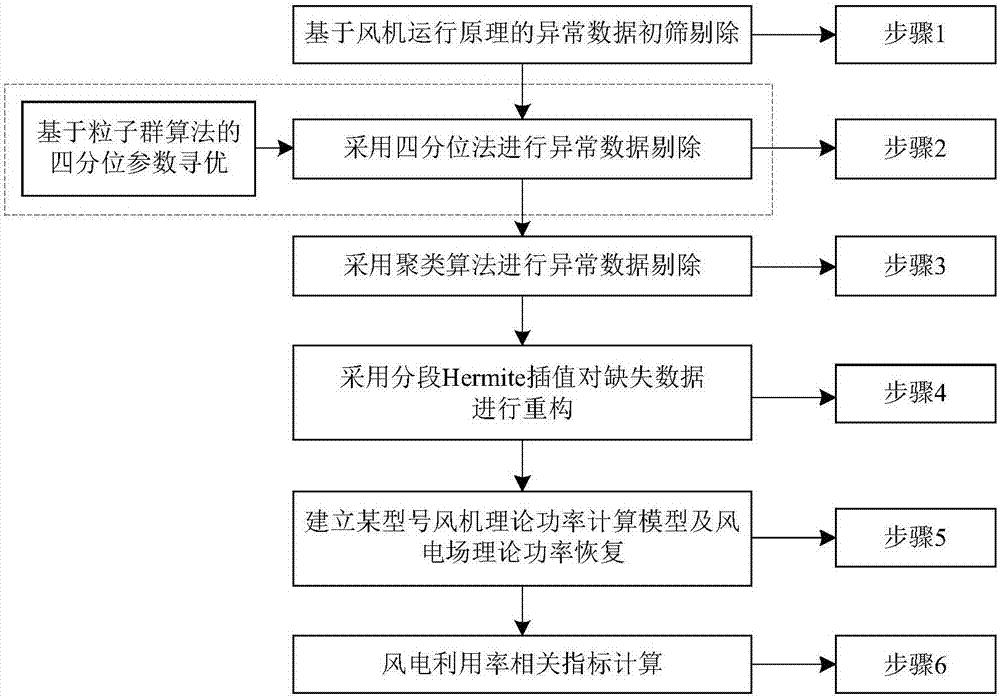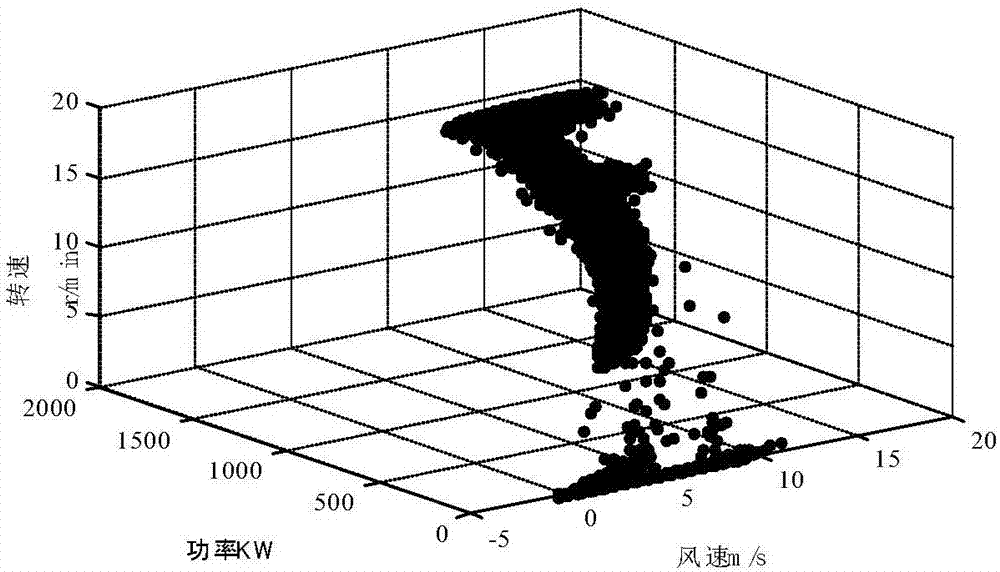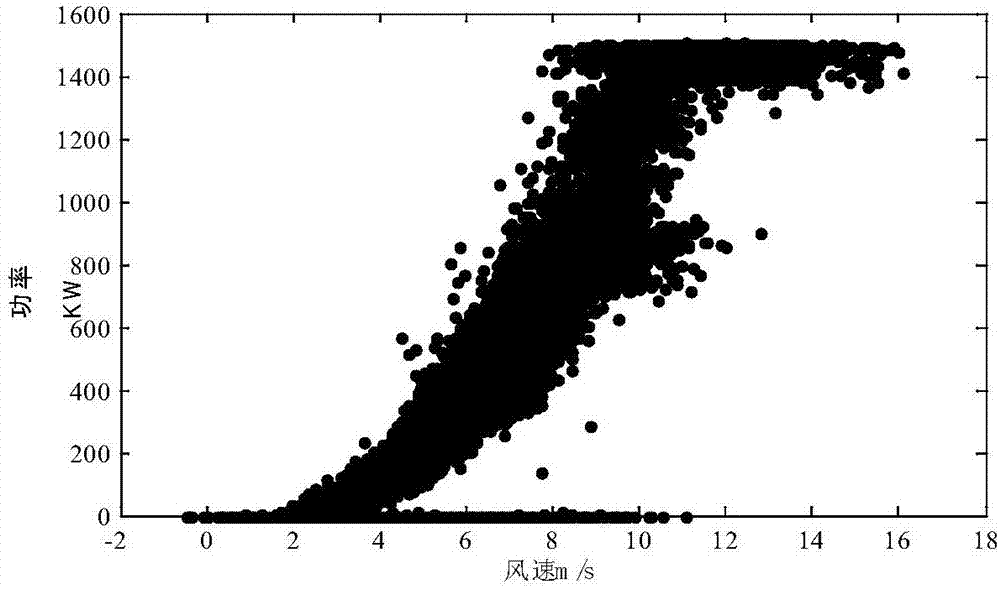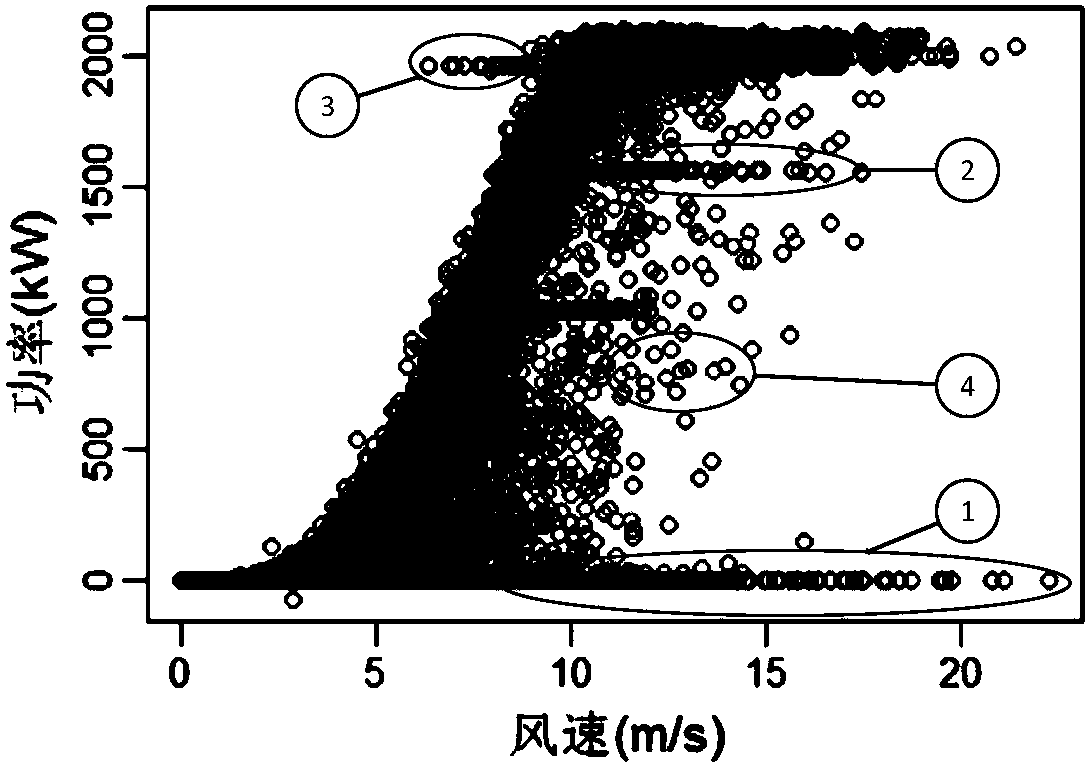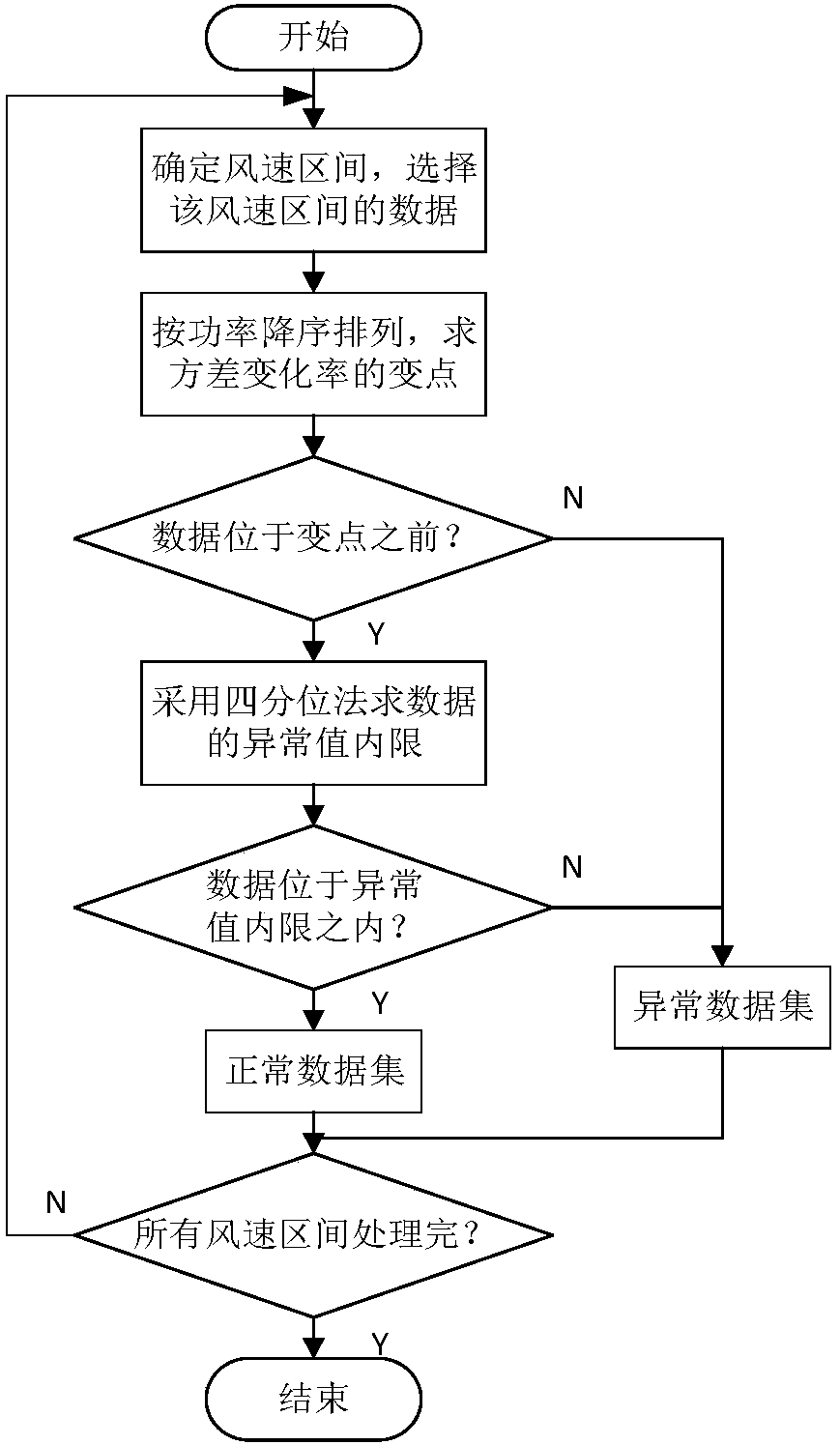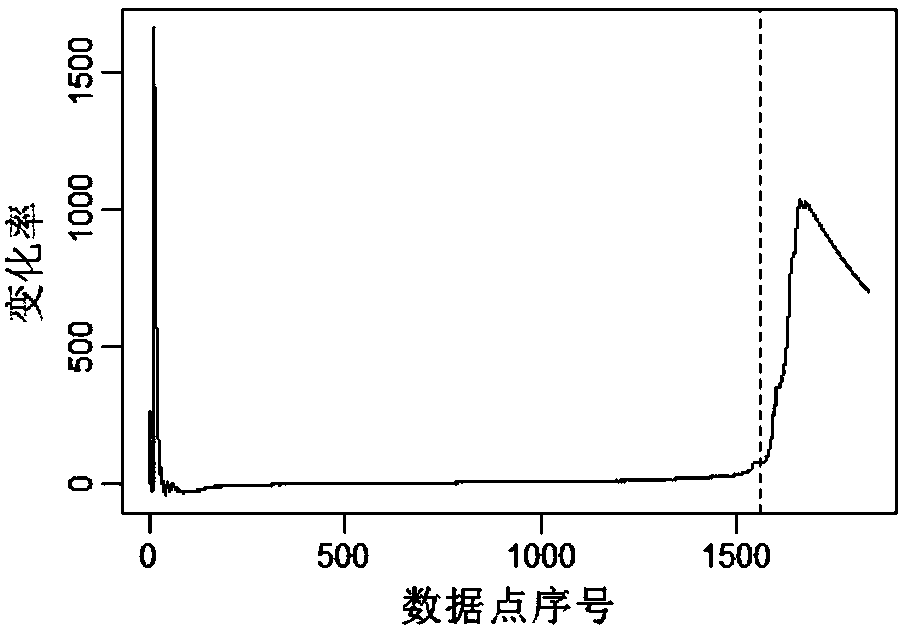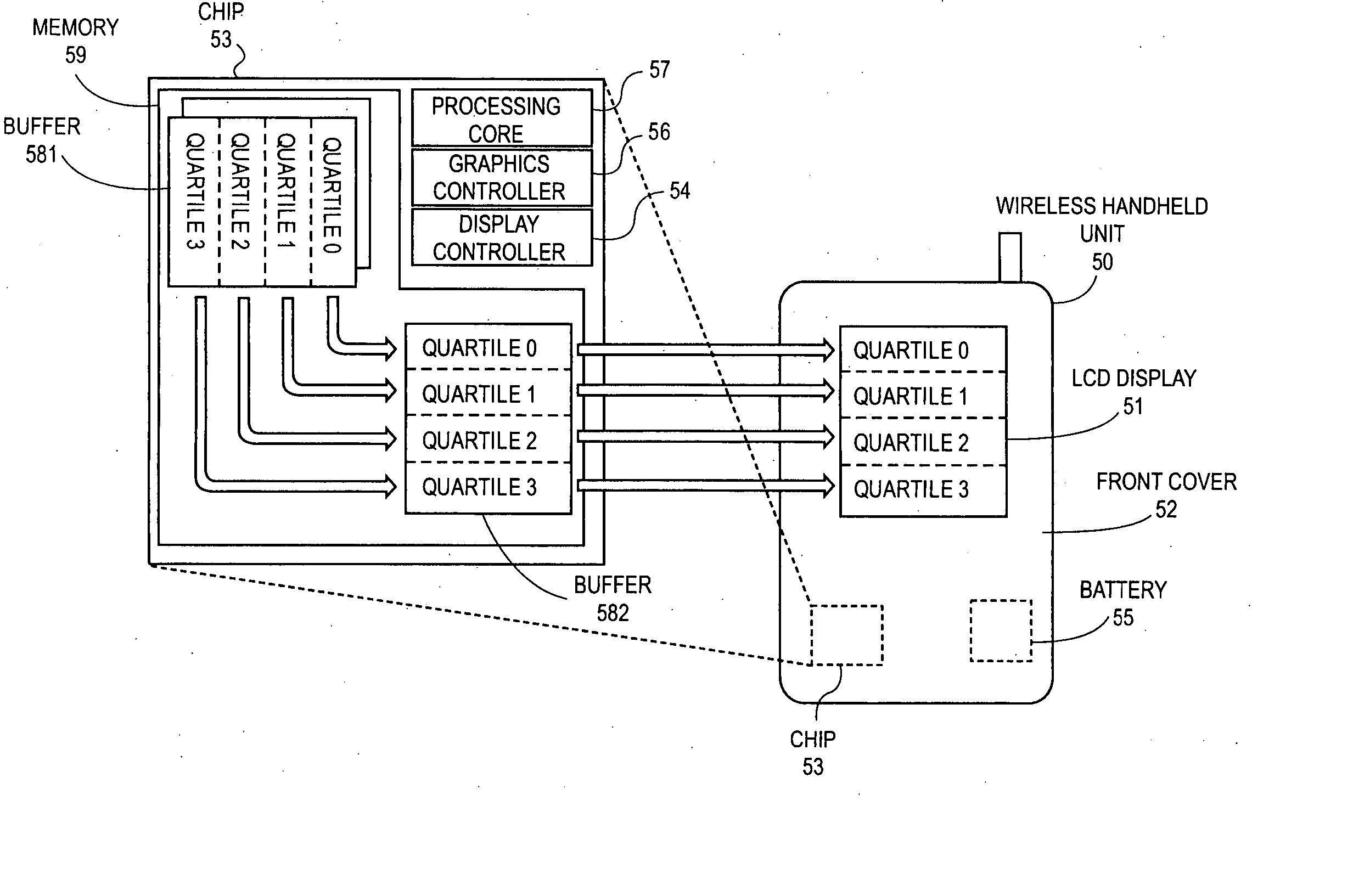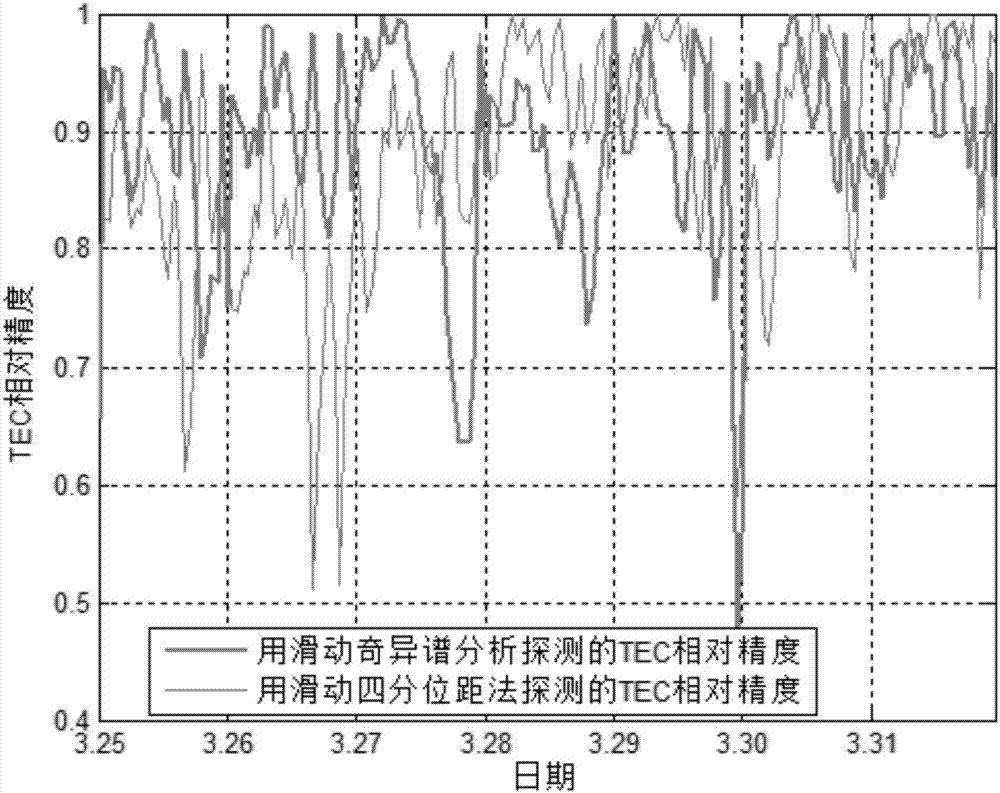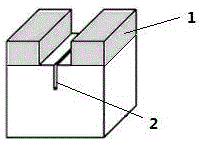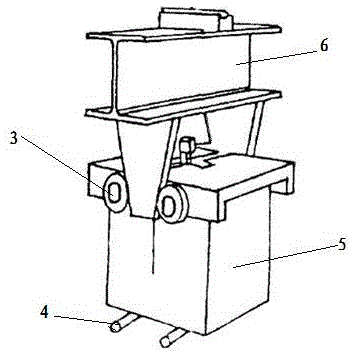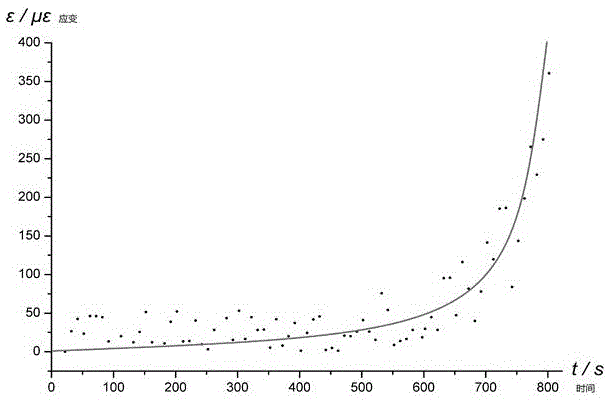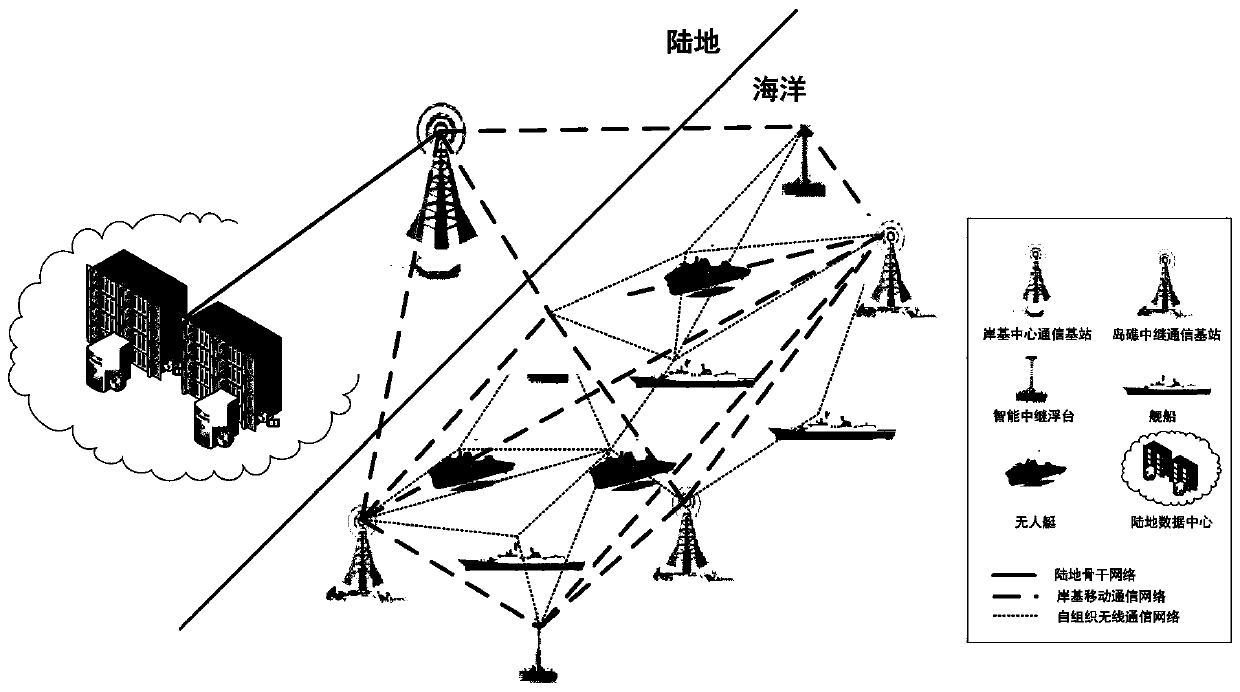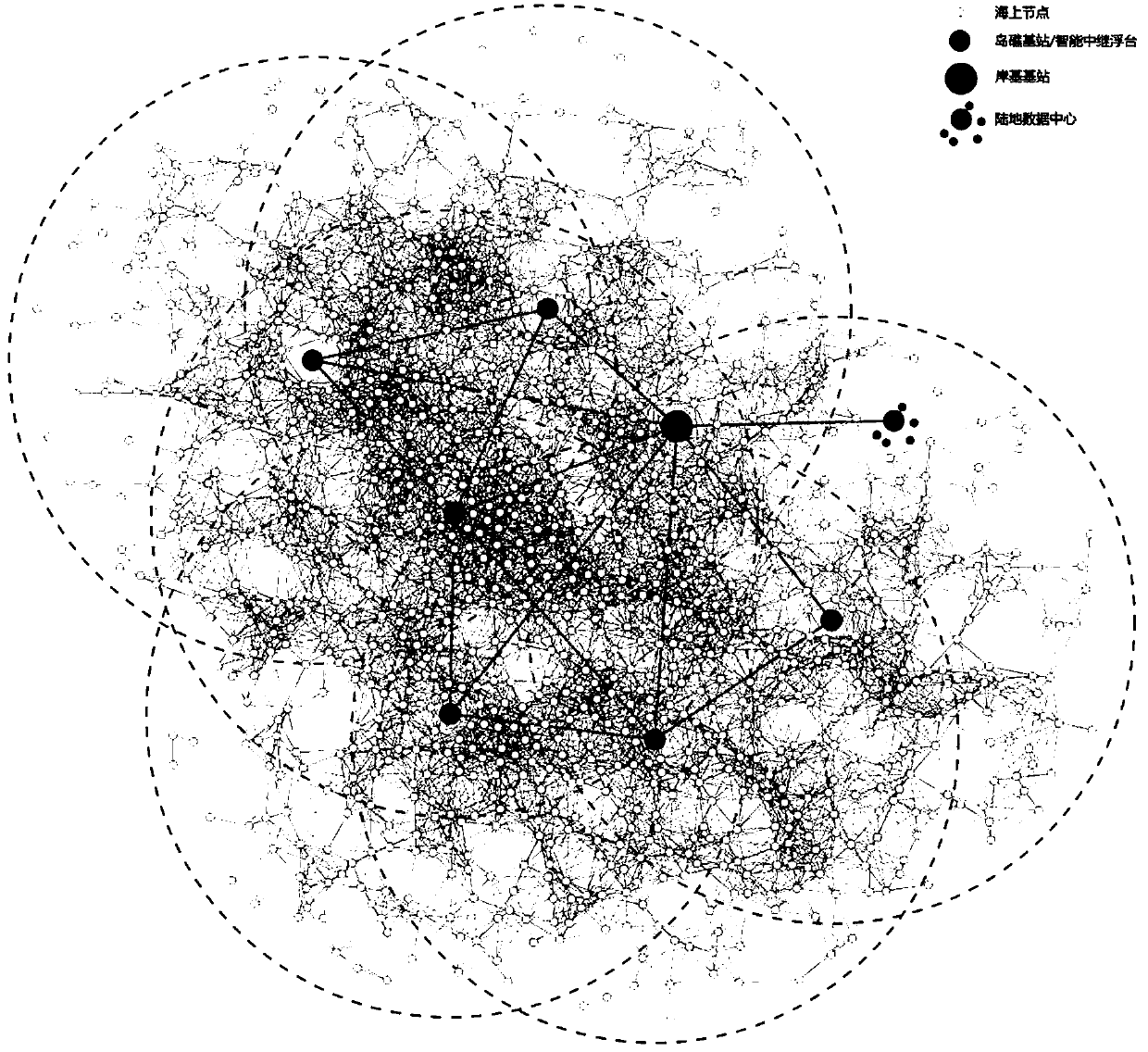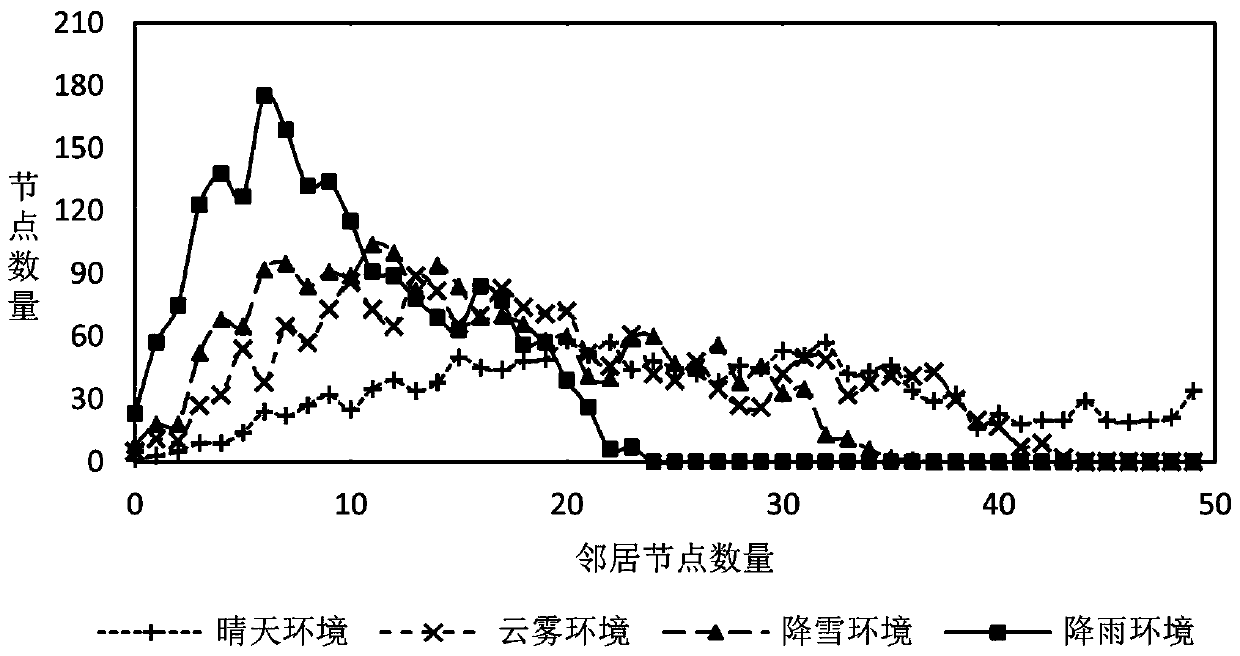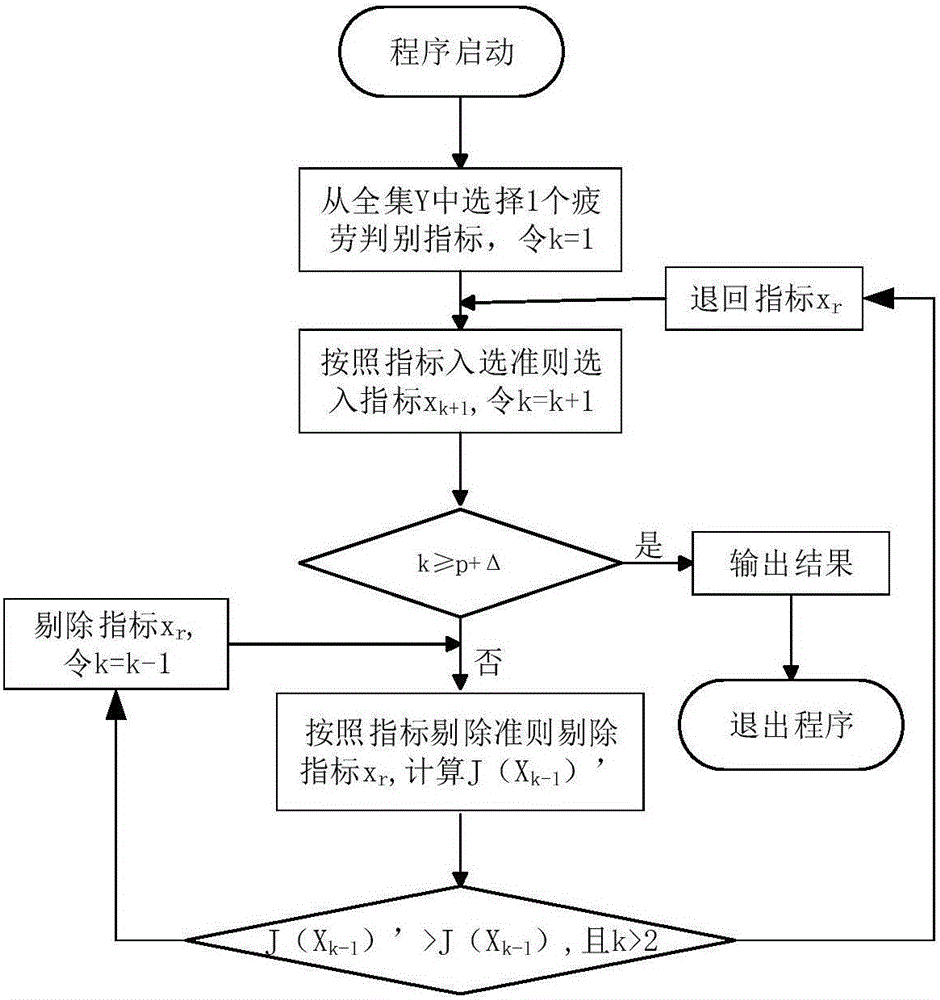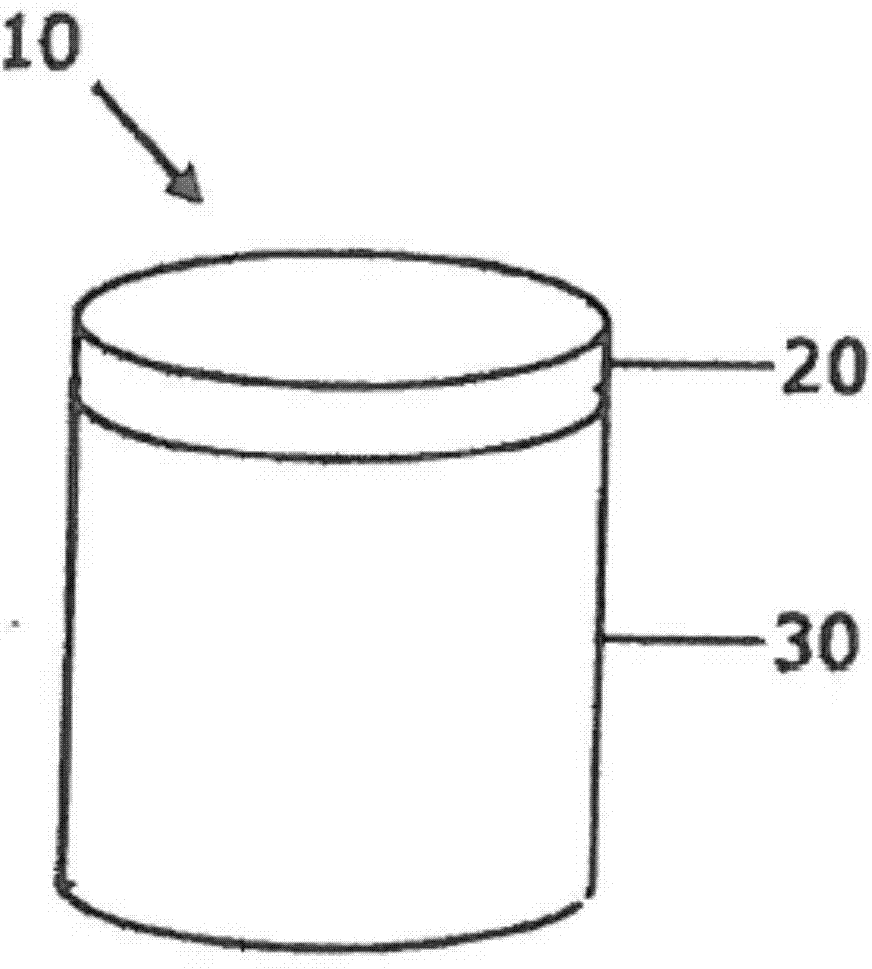Patents
Literature
Hiro is an intelligent assistant for R&D personnel, combined with Patent DNA, to facilitate innovative research.
97 results about "Quartile" patented technology
Efficacy Topic
Property
Owner
Technical Advancement
Application Domain
Technology Topic
Technology Field Word
Patent Country/Region
Patent Type
Patent Status
Application Year
Inventor
A quartile is a type of quantile. The first quartile (Q₁) is defined as the middle number between the smallest number and the median of the data set. The second quartile (Q₂) is the median of the data. The third quartile (Q₃) is the middle value between the median and the highest value of the data set.
Wind power utilization rate calculation method based on running data
ActiveCN107330183AAvoid adverse effects such as deviationImprove accuracyDesign optimisation/simulationSpecial data processing applicationsMissing dataSimulation
The invention discloses a wind power utilization rate calculation method based on running data. The method comprises the following steps of 1, conducting preliminary screening and eliminating on abnormal data based on a fan running principle; 2, adopting a quartile method of parameter optimization to further eliminate the abnormal data; 3, adopting a clustering algorithm to deeply eliminate the abnormal data; 4, adopting segmental Hermite interpolation to reconstruct missing data; 5, establishing a theoretical power calculation model of a wind power unit with a corresponding model number and conducting wind power plant theoretical power restoration; 6, calculating wind power utilization rate corresponding indexes. Based on fan running data recorded by a wind power plant SCADA (Supervisory Control And Data Acquisition) system, and through the combination of an effective data quality control means, a wind power plant theoretical power restoration algorithm is provided, which provides a reasonable path for calculation of the wind power utilization rate, and also provides scientific basis for wind power running condition evaluation and planning and development of the wind power and power grid.
Owner:NORTH CHINA ELECTRIC POWER UNIV (BAODING)
Cleaning method for wind power data of wind generating set
ActiveCN108412710AReasonable processEasy to cleanWind motor combinationsMachines/enginesElectricityCleaning methods
The invention relates to a cleaning method for the wind power data of a wind generating set. The method comprises the following steps that (1) the wind power data to be cleaned are divided into a plurality of data intervals according to the wind speed; (2) each data interval is subjected to data cleaning by adopting a variable-point grouping-quartile method, and abnormal data are removed; and (3)the cleaned data intervals are combined to obtain the cleaned wind power data. Compared with the prior art, the method has the advantages of being good in data cleaning effect, high in efficiency andhigh in universality.
Owner:TONGJI UNIV
Method and apparatus for displaying rotated images
InactiveUS20070139445A1Geometric image transformationCathode-ray tube indicatorsGraphicsWrite buffer
A graphics system includes a single buffer coupled between a graphics controller and a display controller. The graphics controller rotates a frame generated by an application and writes the rotated frame into the buffer. The rotation is performed a segment (e.g., a quartile of a frame) at a time. Each time the display controller completes displaying a frame quartile, the display controller signals the graphics controller to rotate a corresponding quartile of a next frame. The reduction in buffer space reduces power consumption and improves performance of the system.
Owner:MICRON TECH INC
Co-investment structure with multi-option hurdle rate alternatives for performance based asset allocation
A co-investment structure that aligns interests among investors and investment managers by creating pure performance based compensation for the investment manager while overcoming the conundrum facing asset allocators in selecting investment managers. The co-investment structure provides cash-based evaluation of performance and offers multi-option hurdle rate alternatives that accommodate the performance benchmarks of major asset classes while establishing a compensation structure using granular stratification of relative performance. The co-investment structure bases investment manager compensation solely on excess profits, actually cultivating entrepreneurial returns. In particular, the best entrepreneurial investment managers, singularly focused on achieving excess profit with respect to a top quartile benchmark, excel with the co-investment structure.
Owner:KAZARIAN PAUL B
Method for online restoring abnormal data of wind power plant
ActiveCN103631681AQuick checkAccurate detectionRedundant operation error correctionPeaking power plantData set
The invention provides a method for online restoring abnormal data of a wind power plant. The method comprises the following steps of I, determining a processed data item according to the data of the wind power plant; II, selecting a starting point of the processed data item; III, acquiring a continuous differential data sequence by adopting a slide window differential method; IV, judging whether the data is the abnormal data or not by utilizing a quartile method; and V, determining a restored data set. By adopting the method, the requirement on online detecting and restoring the abnormal data can be met, the data quality can be effectively improved, the quality of the collected data can be guaranteed, and the influence of the abnormal source on the data analysis can be reduced.
Owner:STATE GRID CORP OF CHINA +3
Ionosphere TEC (Total Electron Content) anomaly detection method
ActiveCN107356979ASimple and fast operationHigh precisionCharacter and pattern recognitionElectric/magnetic detectionLower limitSingular spectrum analysis
The invention discloses an ionosphere TEC (Total Electron Content) anomaly detection method, which mainly comprises the steps of forming an ionosphere TEC time sequence, performing decomposition and reconstruction by using SSA calculate a background value, adopting a sliding quartile range method for an absolute value of the difference of the background value and an observed value to calculate a tolerance value at each moment of the detection day, and thus calculating an upper limit value and a lower limit value of the detection day. Singular spectrum analysis is adopted and slides day by day to calculate ionosphere TEC anomalies on the other days. The ionosphere TEC anomaly detection method performs ionosphere IEC anomaly detection based on a sliding singular spectrum analysis method, not only considers the background value of the ionosphere TEC at the detection moment, but also applies the traditional sliding quartile range method to the absolute value of the difference of the time sequence observed value and the background value to calculate the upper limit value and the lower limit value at each moment of the detection day, so that the accuracy and precision of an ionosphere TEC anomaly detection result are greatly improved by using robust statistical mathematical features of the sliding quartile range method, and the ionosphere TEC anomaly detection method has a characteristic of being universal.
Owner:HUAIHAI INST OF TECH
Method for studying material mechanics behaviors of concrete crack process zone
InactiveCN105004611APrevent hazardous cracksMaterial strength using tensile/compressive forcesElectrical testingStrength of materials
The invention discloses a method for studying material mechanics behaviors of a concrete crack process zone. The method includes the steps that original-level concrete samples are manufactured, a crack is prefabricated in the top of each sample, and a steel block is bonded to each crack; the overall dimensions of the samples and the masses of wedge-shaped loading frames are measured; strain gages are arranged on the two sides of the pointed end of the prefabricated crack of each sample; the positions of quartile points are marked at the bottom of each sample; each sample is installed on a testing machine through loading pulleys along with the corresponding wedge-shaped loading frame; a knife edge thin steel plate is installed in the middle of each prefabricated crack; loading is carried out on each sample through the testing machine, and data are collected through a dynamic strain indicator while loading is carried out; images are collected through a high-accuracy CCD camera till the samples are damaged; the collected data and the collected images are processed and analyzed, and analysis results are obtained. According to the method, as the optical method DIC technology is combined with a traditional electrical testing method, the crack initiation toughness of concrete is determined, and harmful cracks of a new concrete structure are effectively prevented.
Owner:HOHAI UNIV
Gross error elimination method for dam displacement data
ActiveCN106570259AResponse work behaviorReliable decision aidGeometric CADSpecial data processing applicationsChauvenet's criterionWeight coefficient
The invention discloses a gross error elimination method for dam displacement data. The gross error elimination method comprises the steps of setting weight coefficients for four off-group point judging criteria, namely a Dixon criterion, a Grubbs criterion, a Chauvenet criterion, and a quartile criterion, and setting a gross error judging threshold value; then, for each measured value, carrying out judgment respectively by using above four criteria, and if a judgment result under a certain criterion is a suspected gross error, accumulating the weight coefficient corresponding to the criterion; and at last, obtaining a weight coefficient sum of the measured value, and comparing with the gross error judging threshold value, wherein the measured value with the weight coefficient sum up to or exceeding the gross error judging threshold value is judged as a gross error. According to the gross error elimination method disclosed by the invention, multiple off-group point data identification methods are considered comprehensively, the possibilities of misjudgment and judgment omission are weighed, and a scientific and reasonable method is provided to eliminate the gross error in the dam displacement data.
Owner:STATE GRID ELECTRIC POWER RES INST +1
Method for representatively sampling subsize rock model structural surface sample sampled based on layering probability
ActiveCN103558094AReduce in quantityLow costMaterial strength using steady shearing forcesStatistical precisionErrors and residuals
A method for representatively sampling a subsize rock model structural surface sample sampled based on layering probability comprises the following steps of: (1) orientationally counting and measuring fluctuation amplitude of a raw rock structural surface sample, respectively calculating a roughness coefficient characteristic constant JRC and a statistic average value of each measuring segment of the scale by a formula; (2) calculating based on quartile division to obtained JRC average values and variances of three intervals: P0-25, P25-75 and P75-100; and (3) setting a relative permissible error of an average value of samples and an ensemble average value to be gamma, and setting confidence to be 95%. The said calculated data is substituted into a layeredly sampling formula to obtain a total sample size, and the sample size of each layer is determined based on the layer weight: W0-25=1 / 4, W25-75=1 / 2 and W75-100=1 / 4. The method provided by the invention can effectively satisfy statistic precision requirement of the shear strength dimension effect of the rock model structural surface, and can raise test statistic precision.
Owner:SHAOXING UNIVERSITY
Method for trust collaborative services for maritime edge computing network
ActiveCN110502328AImprove recommendation utilityFast fusionProgram initiation/switchingResource allocationNetwork behaviorEdge computing
The invention discloses a method for trust collaborative services for maritime edge computing network (TCSMEC). The method is based on a collaborative filtering idea. A network heartbeat information piggyback technology is adopted, fusing the node similarity relationship, the network behavior, the link feature and the neighbor similarity node to construct a local trust network, recommendation is carried out based on the service capability, the service quality, the load, the trust relationship between the nodes and other characteristics of the edge computing service nodes. a quartile method isadopted to filter service quality evaluation information to improve recommendation effectiveness. Self-adaptive edge computing service access and rapid resource fusion are realized through queue hierarchical control. Simulation experiments show that compared with ADOV and RandomWalk methods, the TCSMEC has the advantages that the service energy consumption, the load efficiency, the link transmission rate and the like are obviously dominated, and the TCSMEC can efficiently realize the marine edge computing trusted collaborative task migration service in a complex marine meteorological environment.
Owner:JIAXING UNIV
High-frequency oscillation rhythm detection method based on optimal fuzzy clustering Gaussian mixture model
ActiveCN108875604ADetection speedCharacter and pattern recognitionDiagnostic recording/measuringFrequency spectrumEpileptogenic focus
The invention provides a high-frequency oscillation rhythm detection method based on an optimal fuzzy clustering Gaussian mixture model. A method based on clustering analysis is adopted to detect thehigh-frequency oscillation rhythm, fuzzy entropy, short-time energy, a power ratio and a frequency spectrum center of mass are selected as the characteristics of an epilepsy electroencephalogram, thecharacteristics are formed into a characteristic vector as the input of a clustering algorithm, an expectation-maximization Gaussian mixture model clustering algorithm is adopted to classify the characteristic vector, and a fuzzy c-mean clustering algorithm is adopted to obtain the initialization parameter of the expectation-maximization Gaussian mixture model clustering algorithm; and a median and a quartile range are selected to analyze each category of statistics characteristics, and the high-frequency oscillation rhythm is detected. The method has the beneficial effects that the detectionspeed of the high-frequency oscillation rhythm of the epilepsy electroencephalogram is improved, and doctors are assisted in carrying out epilepsy diagnosis and epileptogenic focus excision.
Owner:CHINA UNIV OF GEOSCIENCES (WUHAN)
Apparatus and methods of visualizing numerical benchmarks
Methods and apparatus for visualizing numerical benchmarks are disclosed, wherein a display containing information relating to the general performance of a business in relation to its industry is created. The display incorporates the lower quartile value, the median value, and the upper quartile value of an industry. The display further incorporates the business ratio value. The display further includes indications of whether the business ratio value demonstrates good performance or poor performance of the business in relation to its industry. Thus, a user viewing the display can determine what a particular business' general performance is in relation to the lower quartile value, median value, and upper quartile value of its industry.
Owner:SAP AG
Power data preprocessing method based on mathematical statistics
The invention discloses a power data preprocessing method based on mathematical statistics. The power data preprocessing method comprises an original data set input step, a data extraction step, a negative value and null value screening step, an abnormal large value screening step, a data preliminary pre-classification step and a tag adding step. The power data preprocessing method based on mathematical statistics combines quartile detection in mathematical statistics with a standard score detection method, can help the staff of a power grid to improve the efficiency of examining original abnormal data, and optimizes the data quality of an original data set.
Owner:SHANGHAI MUNICIPAL ELECTRIC POWER CO
Commodity inventory risk early warning method and system based on statistical quartile distance and computer readable storage medium
ActiveCN110751371AImprove computing powerImprove processing efficiencyResourcesLogisticsEarly warning systemAnomaly detection
The invention discloses a commodity inventory risk early warning method based on statistics of quartile distances. The method comprises the steps of obtaining original commodity inventory data of allstores in a certain historical time period; calculating according to the original commodity inventory data to obtain inventory incremental data; calculating an upper quartile and a lower quartile of the inventory incremental data, and calculating a quartile distance and an anomaly detection threshold according to the upper quartile and the lower quartile; and detecting whether the new inventory increment exceeds an abnormality detection threshold, and if so, judging the new inventory increment as abnormal data and pushing the abnormal data to a front-end early warning. The invention also provides a commodity inventory risk early warning system based on the statistical quartile distance, and a computer readable storage medium containing the method. According to the invention, the problems of large calculation overhead, abnormal value missed judgment when the data volume is large, low timeliness and the like in the prior art are solved.
Owner:SUNING CLOUD COMPUTING CO LTD
method for detecting bad data in state estimation based on improve BP neural network
InactiveCN109376850AFast convergenceHigh precisionData processing applicationsNeural architecturesQuartileMachine learning
A method for detecting bad data in state estimation based on improve BP neural network relates to that technical field of power system state estimation. This method firstly improves the traditional BPneural network, then inputs the good data of power system state estimation into the improved BP neural network, and trains the improved BP neural network. Then, through the trained improved BP neuralnetwork model, the doubtful data sets in the power system are screened out. Finally, the traditional quartile method is used to detect and identify the bad data in power system. The invention provides a method for detecting bad data in state estimation based on improved BP neural network, The improved BP neural network can better detect and identify the data in power system state estimation, at the same time, it can shorten the time of detecting data, effectively eliminate bad data, and improve the accuracy of data in state estimation.
Owner:FUSHUN POWER SUPPLY COMPANY OF STATE GRID LIAONING ELECTRIC POWER SUPPLY +3
Urban business-circle cluster partition method based on self-adaptive DBSCAN density clustering
InactiveCN107688955APreserve layout featuresConducive to excavationCharacter and pattern recognitionData miningGeographic siteGeolocation
The invention provides an urban business-circle cluster partition method based on self-adaptive DBSCAN density clustering. The method includes the following steps that 1, for all shops of one type ofall cities, the nearest distance is subtracted form 1, the global DBSCAN clustering radius epsilon G is obtained, and the quartile Q of the number distribution of this type of shops of all the citiesis calculated; 2, longitude and latitude data of all this type of shops of the city Ci is obtained; 3, whether the number of this type of shops of the city is larger than the Q or not is judged. If the number of this type of shops of the city is larger than the Q, the city shop clustering radius epsilon is independently calculated, MinPts=1, and DBSCAN density clustering is conducted; otherwise, the global clustering radius epsilon G is used, MinPts=1, and DBSCAN density clustering is conducted. For cities different in shop number and scale, different business-circle cluster partition strategies are performed, the robustness of the geographical location cluster partition result is improved, the business-circle layout characteristics of one type of shops in different cities are effectivelyreflected, and a subsequent recommendation system thus can easily explore the user behavior about the change of interest points in geographical positions.
Owner:ZHEJIANG UNIV OF TECH
Ultrasonic phased array method based on information fusion
ActiveCN103870686AImprove anti-interference abilityReduce data volumeSpecial data processing applicationsSonificationArray element
The invention discloses an ultrasonic phased array method based on information fusion based on information fusion and belongs to an ultrasonic signal processing technology. The algorithm comprises a bitmap segmenting method and bayes estimation. The bitmap segmenting method comprises the following steps: extracting out medians, upper quartiles and lower quartiles of signals independently collected by each array element of an ultrasonic phased array probe in sequence, obtaining quartile dispersion, solving out elimination points and obtaining effective data fusion sets. Bayes estimation is established by virtue of the following steps: obtaining a characteristic function of each piece of effective data, solving out a decision function, obtaining a risk function, extracting the bayes risk of the decision function and obtaining most effective estimated values of parameters. The method disclosed by the invention can be used for improving the utilization rate of information collected by ultrasonic phased array elements, and obtaining more accurate and reliable description on a real environment.
Owner:CIVIL AVIATION UNIV OF CHINA
Wrist strap instrument based driver fatigue detection method
InactiveCN106448059AAvoid the shortcomings of strong intrusion in normal drivingAvoid interferenceAlarmsSupport vector machineSteering wheel
The invention provides a wrist strap instrument based driver fatigue detection method. The method includes: acquiring a steering wheel rotational angular velocity signal; computing fatigue feature indexes according to the steering wheel rotational angular velocity signal, wherein the fatigue feature indexes at least include steering wheel rotational angular velocity average, steering wheel rotational angular velocity standard deviation, steering wheel rotational angular velocity first moment, steering wheel rotational angular velocity maximum value, steering wheel rotational angular velocity quartile and steering wheel rotational angular velocity average larger than 75% fractile as well as steering wheel immobility times, steering wheel continuous immobility time and steering wheel reciprocating correction frequency; optimizing the extracted fatigue feature indexes so as to screen an optimal index subset from a fatigue judgement index universal set; using the optimal index subset as input to build an SVM (support vector machine) based fatigue detection model for fatigue detection.
Owner:TSINGHUA UNIV
Image enhancement method and device
The invention discloses an image enhancement method and device. The method includes: for pixel points of an image to be processed, according to a sequence of low brightness to high brightness, determining pixel point brightness values corresponding to percentages of the quantity of the pixel points in the image to be processed, as quartile brightness values, with the quartile brightness values as demarcation points, according to the sequence of low brightness to high brightness, dividing the pixel points of the image to be processed, into a plurality of pixel point sets, for each pixel point set, subjecting the brightness values of the pixel points in the pixel point set to enhancement in a preset processing manner corresponding to the pixel point set, thereby acquiring enhanced brightness values of the pixel points in the pixel point set, and replacing the brightness values of the pixel points in the pixel point sets with the corresponding enhanced brightness values, thereby acquiring a first enhanced image of the image to be processed. The image enhancement method and device has the advantage that image enhancement universality is improved.
Owner:ZHEJIANG DAHUA TECH CO LTD
Pre-warning model and method for vehicle speed abnormity and based on car networking and model building method
ActiveCN109615879AOvercome the defect of incomplete speed anomaly detectionTargetedAnti-collision systemsSimulationQuartile
The invention discloses a pre-warning model and method for vehicle speed abnormity and based on car networking and a model building method. The model building method comprises a step of screening speed data, a step of abstracting speed components, a step of calculating speed difference components, a step of grouping the speed difference components and a step of calculating safe sections using a quartile method and building the pre-warning model. The pre-warning method for the vehicle speed abnormity comprises a step of obtaining the speed data of a to-be-detected vehicle, a step of calculatingthe speed difference components and a step of using the referred pre-warning model for pre-warning detecting the speed difference components. According to the pre-warning model and method for the vehicle speed abnormity and based on the car networking and the model building method, continuous and all-round vehicle speed abnormity detecting can be carried out aiming at vehicle speed grades, the detecting effect is more comprehensive, and the pre-warning effect is more precise.
Owner:CHENGDU LUXINGTONG INFORMATION TECH
Superhard constructions and methods of making same
A superhard polycrystalline construction, such as polycrystalline diamond, is disclosed which comprises a body of polycrystalline superhard material having a first region 41,42 and a second region 46 adjacent to and bonded to the first region by intergrowth of grains of superhard material. The first region comprises a plurality of alternating layers, each having a thickness in the range of around 5 to 300 microns. One or more layers in the second region have a thickness greater than the thicknesses of the individual layers in the first region. The alternating layers in the first region comprise first layers alternating with second layers, the first layers being in a state of residual compressive stress and the second layers being in a state of residual tensile stress. One or more of the layers in the first or second regions comprise a mass of superhard grains exhibiting inter-granular bonding and defining a plurality of interstitial regions therebetween, the superhard grains and a non-superhard phase at least partially filling a plurality of the interstitial regions. The median of the mean free path associated with the non-superhard phase divided by (Q3-Q1) for the non-superhard phase is greater than or equal to 0.50, where Q1 is the first quartile and Q3 is the third quartile; and the median of the mean free path associated with the superhard grains divided by (Q3-Q1) for the superhard grains is less than 0.60. A method of forming the construction is also disclosed.
Owner:ELEMENT SIX ABRASIVES
Method for determining wind-solar primary frequency modulation reserve capacity considering cluster electric vehicle
ActiveCN108767906AAdjust spare capacitySingle network parallel feeding arrangementsWind energy generationEngineeringSolar power
The invention provides a method for determining wind-solar primary frequency modulation reserve capacity considering a cluster electric vehicle. The method comprises the following steps: acquiring historical data of the maximum wind-solar power generation of the wind power in each time interval in one day of a wind power plant, and predicting the wind power in real time; acquiring historical dataof a photovoltaic power station, using fuzzy C-means clustering, dividing the weather into four basic types: sunny, partly cloudy, cloudy, and rainy, and carrying out real-time prediction on the photovoltaic output; arranging the wind power output and photovoltaic output data under each weather condition in sequence from small to large, and processing the data by using a quartile method; respectively giving an wind-abandoning and solar-abandoning proportionality coefficient of each part; calculating the respective total reserve capacity of the wind power plant and the photovoltaic power station; according to the controllable load provided by an electric vehicle aggregator with the reliability greater than or equal to n%, dividing the controllable load into two parts according to the reserve capacity of wind and solar; setting the controllable load provided by the cluster electric vehicle; and calculating the actual reserve capacity provided by the wind power plant and the photovoltaicpower station. According to the method for determining the wind-solar primary frequency modulation reserve capacity considering the cluster electric vehicle provided by the invention, wind-abandoningand solar-abandoning are reduced while providing the reserve capacity.
Owner:SHENZHEN POWER SUPPLY BUREAU
Time-frequency-analysis-based method for automatically separating peak activities in high-frequency oscillation rhythms
ActiveCN110584598AImprove detection accuracyDiagnostic signal processingSensorsTime–frequency analysisEpileptogenic focus
The present invention discloses a time-frequency-analysis-based method for automatically separating peak activities in high-frequency oscillation rhythms. Firstly, acquiring brain electrical signals of an epileptic patient and also extracting original signals corresponding to the suspected high-frequency oscillation rhythms; then conducting peak signal detection on the original signals corresponding to the suspected high-frequency oscillation rhythms, removing the detected peak signals and obtaining the high-frequency oscillation rhythms with high precision. The detection of the peak signals uses the time-frequency-analysis-based method, a box-plot is used to obtain upper quartile and lower quartile of signal power, peak activity mixed in the high-frequency oscillation rhythms is detected,and the detection precision of the high-frequency oscillation rhythms of the epileptic brain electrical signals is improved. The present invention discloses a high-frequency oscillation rhythm detection device and a storage device and realizes the high-frequency oscillation rhythm detection method. The time-frequency-analysis-based method has the beneficial effects of improving the detection precision of the high-frequency oscillation rhythms of the epileptic brain electrical signals and helping doctors to diagnose epilepsia and remove epileptogenic focus.
Owner:CHINA UNIV OF GEOSCIENCES (WUHAN)
Baseline-based method for analyzing health state of operation, maintenance and management system
The invention discloses a baseline-based method for analyzing health state of operation, maintenance and management system. According to the method, firstly, the real-time condition of a management object index is acquired continuously and periodically based on a preset management rule. Meanwhile, the real-time condition is stored to form historical data. Secondly, the healthy running reference line of the management object index, which varies along with the time, is obtained through the quartile algorithm according to the historical data. Thirdly, with the reference line as a center, a reasonable deviation amplitude range is set according to the percentages of history data points above and below the deviation amplitude thereof. If the data of the management object index fluctuate within the reasonable deviation amplitude range, the management object index is judged to be in the normal state. Otherwise, the management object index is judged to be in the out-of-range state. Fourthly, the health trend of the operation, maintenance and management system can be judged according to the statistics on the out-of-range frequency. Finally, by utilizing the healthy running reference line extracted based on the quartile algorithm, the reference line is closer to the operation normal value of the above index. The deviation amplitude percentage and other parameters are set by users, so that the method is simple and easy to understand. Meanwhile, the judgment standard of the method is more accurate, so that the judgment is more accurate.
Owner:上海北塔软件股份有限公司
Polycrystalline diamond construction & method of making
A superhard polycrystalline construction is disclosed which comprises a body of polycrystalline superhard material such as diamond, comprising a mass of superhard grains exhibiting inter-granular bonding and defining a plurality of interstitial regions therebetween, the superhard grains having an associated mean free path and a non-superhard phase at least partially filling a plurality of the interstitial regions and having an associated mean free path. The median of the mean free path associated with the non-superhard phase divided by (Q3-Q1) for the non-superhard phase being greater than or equal to 0.50, where Q1 is the first quartile and Q3 is the third quartile; and the median of the mean free path associated with the superhard grains divided by (Q3-Q1) for the superhard grains being less than 0.60. The body of polycrystalline superhard material has a first surface having a surface topology comprising one or more indentations therein and / or projections therefrom. There is also disclosed a method of forming such a construction wihch may be used for oil and gas drilling applications.
Owner:ELEMENT SIX ABRASIVES
A data cleaning method based on two-dimensional probability density estimation and a quartile method
ActiveCN109918364AImprove general performanceEfficient identificationDigital data information retrievalSpecial data processing applicationsElectricityData set
The invention belongs to the technical field of wind turbine generator data measurement and processing, and particularly relates to a data cleaning method based on two-dimensional probability densityestimation and a quartile method, which comprises the following steps: collecting wind speed, power and pitch angle data at the height of a hub of a wind turbine generator, and performing normalization preprocessing to form a sample data set; Calculating a joint probability density function of the power and the pitch angle by adopting a two-dimensional non-parameter kernel density estimation method, and determining a pitch angle boundary position through a grid division method; Dividing power and pitch angle data into normal data and abnormal data based on the pitch angle boundary line, and obtaining normal wind speed and power data by adopting a data time benchmarking method; And for omission of abnormal data after cleaning, adopting a quartering method to perform data recleaning. The method is high in universality, the data category of the transition area can be effectively identified, a large number of accumulation type power limiting data can be scientifically cleaned, and a reliable data basis is provided for efficiency evaluation, performance analysis, state diagnosis, health management, power prediction and the like of the wind turbine generator.
Owner:NORTH CHINA ELECTRIC POWER UNIV (BAODING) +1
Method and system for processing historical performance data of storage device based on box graph
InactiveCN108804037AImprove accuracyEasy to predictInput/output to record carriersData informationOutlier
Embodiments of the present invention disclose a method and a system for processing historical performance data of a storage device based on a box graph. The method comprises: obtaining historical performance data information generated by a storage device; calculating the quartile of the historical performance data by using a box graph theory, and obtaining an outlier; and taking a calculation result as a data sample for storage. According to the embodiments of the present invention, the quartile of the historical performance data can be calculated by using the box graph theory to obtain the outlier, so that the defect of the lack of analysis on the outlier in the prior art is overcome, the accuracy of the historical performance data analysis is improved, and according to the analysis result, the current status of the storage device can be accurately mastered, and prediction of the future operation status of the storage device can be facilitated.
Owner:ZHENGZHOU YUNHAI INFORMATION TECH CO LTD
Method for calculating and generating SPWM (Sinusoidal Pulse Width Modulation) for thread spinner frequency converter by using real-time sine values
ActiveCN102710100AReduce distortionHigh precisionAC motor controlPower conversion systemsFrequency changerCarrier signal
Owner:MEIDEN HANGZHOU DRIVE SYSTEMS CO LTD
An ultrasonic phased array nondestructive test method based on fractal
ActiveCN104535663AReduce distractionsImprove anti-interference abilityProcessing detected response signalAlgorithmWavelet decomposition
An ultrasonic phased array nondestructive test method based on fractal is disclosed. The method comprises following two parts: Bayesian information fusion algorithm and signal fractal processing. The Bayesian information fusion algorithm includes following steps of: taking each array element of a ultrasonic phased array probe, separately collecting a median, an upper quartile and a lower quartile in signals in sequence to obtain a quartile dispersion, solving an eliminative point to obtain an effective data fusion set, solving characteristic functions and decision functions of effective data to obtain a risk function, and extracting Bayesian risk of the decision functions to obtain optimal estimated values of parameters. The signal fractal processing includes following steps of: analyzing image fractal characteristics through a wavelet decomposition coefficient figure to determine a scale-free zone, calculating a fractal dimension, and determining whether a flaw exists and determining a flaw type according to the fractal dimension. Based on adoption of the Bayesian information fusion algorithm to improve the information utilization rate, the method adopts a fractal technology to process nonlinear modern signals so as to determine whether a flaw exists in a composite material and to determine a flaw type.
Owner:CIVIL AVIATION UNIV OF CHINA
Quartile graph-based visualization method and system for displaying data
The invention provides a quartile graph-based visualization method for displaying data. The method comprises the steps of: defining data grids Gx, and determining display scales of an X axis; configuring, scanning and reading a data source; analyzing the stored data and correcting the display scales of the X axis, and further calculating quartile of data in each data grid Gx of each scale level; performing data display by adopting a quartile graph. The display of distribution condition of two-dimension data can be realized under huge data volume or huge data environment by defining the data grids Gx to store the data, switching four display scales of the X axis and displaying the data through adopting the quartile graph, and an interaction function can be provided. In addition, the invention further provides a quartile graph-based visualization system for displaying the data.
Owner:SHENZHEN AUDAQUE DATA TECH
Features
- R&D
- Intellectual Property
- Life Sciences
- Materials
- Tech Scout
Why Patsnap Eureka
- Unparalleled Data Quality
- Higher Quality Content
- 60% Fewer Hallucinations
Social media
Patsnap Eureka Blog
Learn More Browse by: Latest US Patents, China's latest patents, Technical Efficacy Thesaurus, Application Domain, Technology Topic, Popular Technical Reports.
© 2025 PatSnap. All rights reserved.Legal|Privacy policy|Modern Slavery Act Transparency Statement|Sitemap|About US| Contact US: help@patsnap.com
